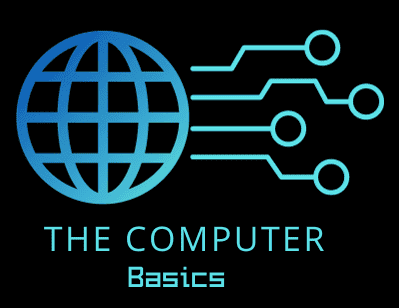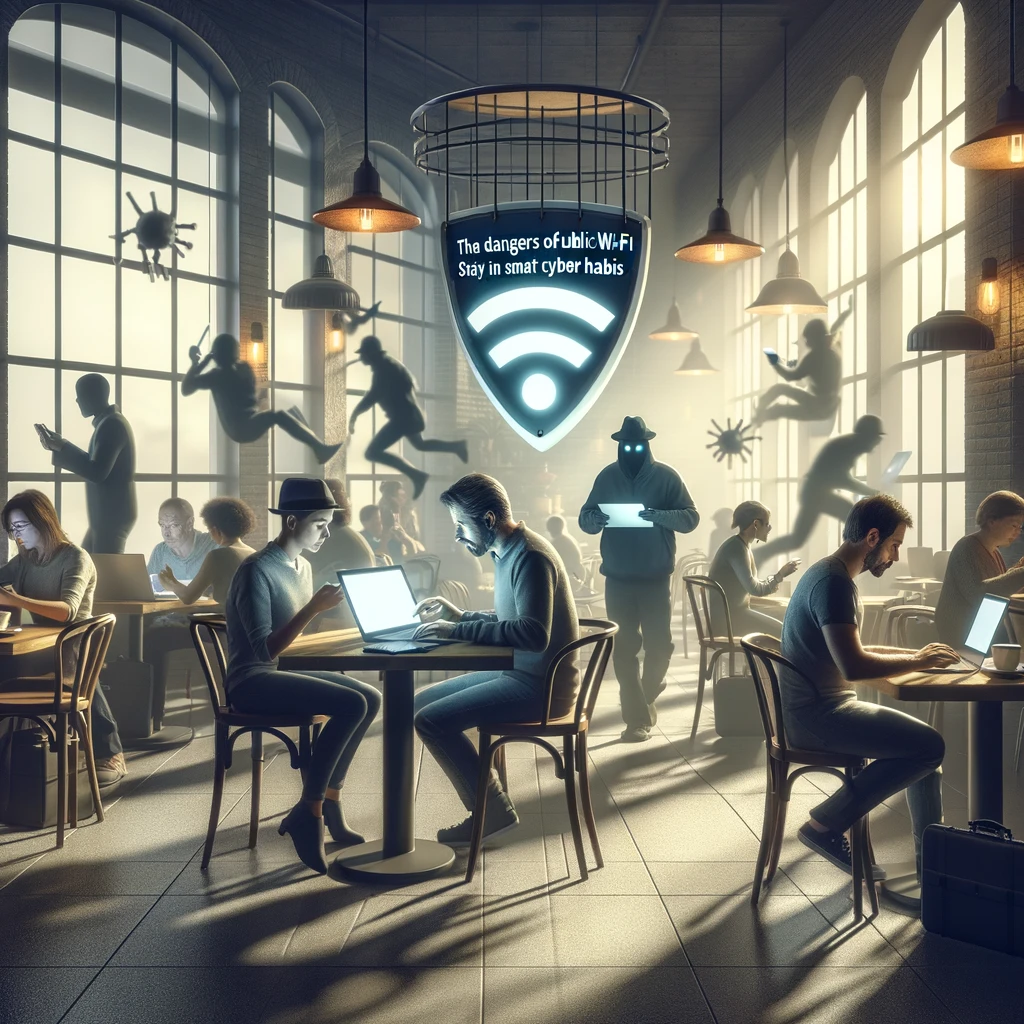Public Wi-Fi has become a staple of daily life, offering the convenience of staying connected wherever you go—from coffee shops to airports. However, the comfort of easy access to the internet comes with significant risks.
Cybercriminals are known to exploit these networks, and without the right precautions, your personal data might be an open book.
Sharing sensitive information or even just browsing on an unsecured Wi-Fi network can leave you vulnerable to a variety of threats, including identity theft, data breaches, and malware infections.

Understanding the threats associated with public Wi-Fi can help you make informed decisions about when and how to use it.
For instance, some of these networks might allow others to intercept your data or trick you into connecting to a spoofed network, letting hackers gain direct access to your device.
Moreover, public Wi-Fi is often not as secure as your private home network because the security protocols might be outdated or improperly implemented.
To avoid falling prey to these digital pitfalls, it’s essential to learn how to protect yourself.
This includes simple steps like verifying the network’s legitimacy with an establishment’s staff, avoiding sensitive transactions, and employing security tools such as VPNs.
By being proactive and conscious of the security measures you take, you can enjoy the convenience of public Wi-Fi without putting your personal information at risk.
Understanding Public Wi-Fi Risks
Public Wi-Fi can be a convenient way to stay connected, but it opens you up to various cybersecurity risks that can expose your sensitive information to cybercriminals.
The Allure and Perils of Free Wi-Fi
Free Wi-Fi is everywhere – from cafes to airports – offering you the convenience of staying connected while on the go. But this convenience often comes at the cost of your online safety.
Hackers fancy public networks for they provide easy access to a broad range of users’ personal data. When you connect, you could be unwittingly exposing your identity, passwords, or banking information especially if the network isn’t secured.
Common Threats on Public Networks
Cybersecurity risks in public Wi-Fi spaces stem from the lack of encryption and open accessibility. Here are some specific threats you might encounter:
- Malware distribution: Unsuspecting users can download malware to their devices, which can damage your computer or breach your privacy.
- Malicious hotspots: These are Wi-Fi connections set up by scammers that mimic legitimate hotspots, designed to steal data from anyone who connects.
- Identity theft: With the right tools, a hacker on the same network could access your personal information and potentially steal your identity.
- Viruses and ransomware: Public networks can be breeding grounds for these threats, which can spread quickly across unsecured connections.
- Phishing emails: Cybercriminals use these deceptive emails to trick you into providing sensitive information. They’re often more successful when sent through a network that you trust, like the Wi-Fi at your favorite coffee shop.
- Snooping and sniffing: Cybercriminals may spy on your activity and intercept the data you send and receive on an unsafe Wi-Fi network.
Using public Wi-Fi necessitates increased vigilance and the use of security measures to safeguard your online presence from these various threats.
Protecting Your Data on Public Networks
When you connect to a public Wi-Fi network, you’re stepping into a world where your personal information is vulnerable to theft and your privacy is at risk. Here’s how you can shield your data from prying eyes.
The Importance of Encryption
Your info’s not private unless it’s encrypted.
When you visit websites, look for HTTPS in the web address—it means your connection to the site is secured. Stay away from sites that don’t start with HTTPS because any data you send there is as good as public.
Did you know? HTTPS encrypts the data between your browser and the website, making it tough for anyone to eavesdrop.
Secure Your Connections with VPNs
A VPN (Virtual Private Network) is like an invisibility cloak for your data.
By routing your internet connection through a private server, you create a secure tunnel that’s way harder for hackers to breach.
Always use a reliable VPN service when on public Wi-Fi—it can mean the difference between your online activities being publicly exposed or kept confidential.
- Always choose a reputable VPN service
- Turn on the VPN before accessing personal accounts or sensitive information
Adopting Safer Online Behaviors
You’re the first line of defense in protecting your digital life.
Start with a strong password—mix up letters, numbers, and symbols so it’s a tough nut to crack.
Enable two-factor authentication (2FA) whenever possible for an extra layer of security on your accounts. And let’s not forget about firewalls—they help keep out unwanted traffic, so make sure yours is turned on and up to date.
- Use strong passwords: Combine upper and lowercase letters with numbers and symbols
- Enable 2FA: A second verification step can keep your accounts twice as secure
- Keep your firewall enabled: It’s a robust barrier against potential attacks
Mitigating Threats with Technology Solutions

When connecting to public Wi-Fi, it’s crucial to have defenses in place. Technology solutions like antivirus programs and regular operating system updates can greatly reduce your risk of falling victim to cyber threats.
Leveraging Antivirus and Anti-malware Software
Your first line of defense is robust antivirus software.
Antivirus programs act as a shield, detecting and blocking malware before it can do any harm. It’s important to choose software with a strong reputation for catching even the sneakiest of cyber threats. Regular scans will help ensure you stay a step ahead of hackers.
Keeping Your Operating System Updated
Equally important is keeping your operating system up to date.
Updates often contain patches for software vulnerabilities, which, if left unaddressed, can be exploited by cybercriminals.
By installing updates promptly, you’re not just adding new features; you’re fortifying your digital walls against potential online security breaches.
Safe Practices in Various Public Spaces

To stay secure while enjoying the convenience of public Wi-Fi, you’ll need to be savvy about the steps you take. Below are specific actions to protect your sensitive data in various locales.
Navigating Wi-Fi in Hotels and Airports
Hotels and airports are bustling hubs where free Wi-Fi is a standard amenity, but they’re also hotspots for potential cyber threats. In these spaces, it’s essential to:
- Verify the official Wi-Fi network with staff before connecting. This prevents you from accidentally selecting a malicious network posing as a legitimate one.
- Avoid accessing sensitive information such as credit card details, personal emails, or financial transactions. If it’s urgent, use a VPN to encrypt your data.
Wi-Fi Use in Restaurants and Libraries
While sipping coffee or nestled among the books, you might feel safe, but the Wi-Fi networks in restaurants and libraries can be just as vulnerable. Keep in mind to:
- Log out of accounts when done, especially after checking emails or entering usernames and passwords.
- Keep your device updated with the latest security patches to fend off malware that could infiltrate unsecured networks.
Recognizing and Avoiding Scams

When you’re connecting to public Wi-Fi, staying alert to scams is as crucial as remembering your password.
Man-in-the-middle attacks are a real threat. That’s when a fraudster intercepts your data mid-transmission. Picture it as a cyber eavesdropper picking up your details as they travel from your device to the Wi-Fi router.
To shield yourself, keep an eye out for red flags like unsecured networks. These don’t require a password for access, making them a playground for cyberattacks.
Always opt for networks that demand authentication, which adds a layer of security.
Here’s a quick checklist to lower your risks:
- Use VPNs to create a secure tunnel for your data.
- Ensure the website is an https website. It’s indicated by a padlock icon and ‘https’ in the URL, showing an SSL certificate is in place.
- Turn off file sharing when connected to a public network to keep your files to yourself.
- Avoid entering sensitive information, such as bank details or passwords, on public Wi-Fi.
- Keep your devices updated; regularly updating can protect against security vulnerabilities.
While it’s tempting to connect and check your email at the local café, it’s better to wait until you’re on a secure network.
If you must log in, using your mobile network is a safer bet than risking it on an unencrypted network where your info could be snagged by prying eyes. Stay vigilant and keep your data out of the hands of fraudsters.

